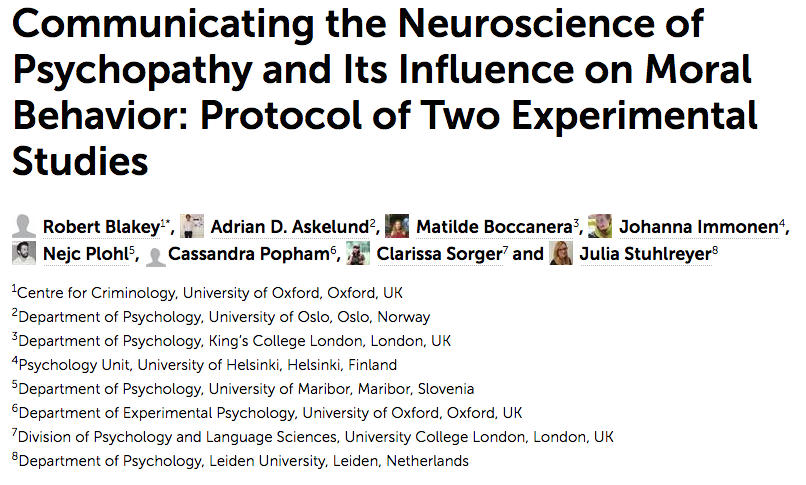
Would communicating the neuroscience of psychopathy influence moral behaviour?
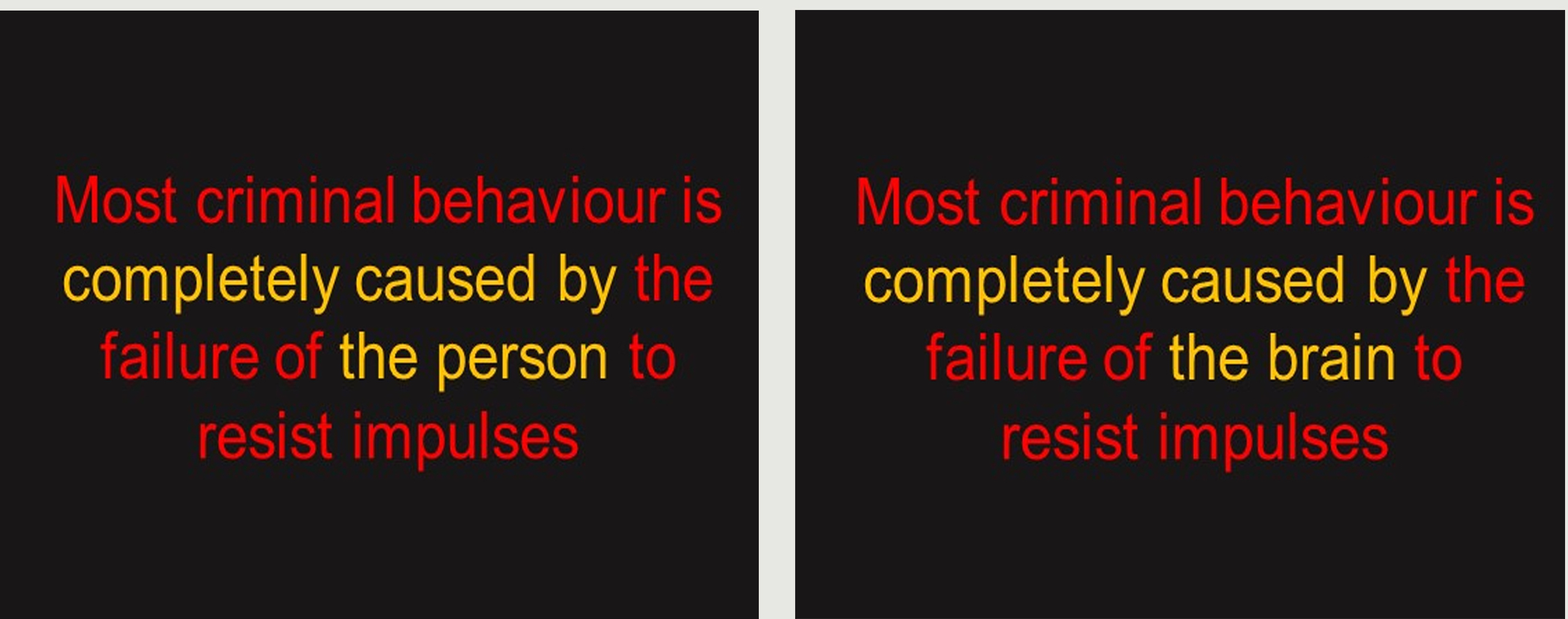
Supervisor
Robert Blakey, University of Oxford – United Kingdom
Researchers
Adrian Askelund – Lead Analyst
Matilde Boccanera – Communications Officer
Johanna Immonen – Lead Analyst
Nejc Plohl – Data Manager
Cassandra Popham – Lead Editor
Clarissa Sorger – Web Manager
Julia Stuhlreyer – Project Manager
Introduction
Neuroscience has identified brain structures and functions that correlate with psychopathic tendencies. Since people are not truly responsible for their brains, it has been argued that psychopaths should not be blamed for their actions. This experimental research aims to evaluate the impact of communicating this theory of psychopathy on the moral behaviour of lay people. If psychopathy is blamed on the brain, people may feel less morally responsible for their own psychopathic tendencies and therefore may be more likely to display those tendencies. We will also assess public recognition of these potential negative consequences of neuroscience communication. This field and online research could inform the integration of neuroscience into policy in a way that is sensitive to potential negative consequences.
Publications
Blakey, Robert, Adrian D. Askelund, Matilde Boccanera, Johanna Immonen, Nejc Plohl, Cassandra Popham, Clarissa Sorger, and Julia Stuhlreyer. “Communicating the Neuroscience of Psychopathy and Its Influence on Moral Behavior: Protocol of Two Experimental Studies.” Frontiers in Psychology 8 (2017). https://doi.org/10.3389/fpsyg.2017.00294
Blakey, R., Askelund, A. D., Boccanera, M., Immonen, J., Plohl, N., Popham, C., Sorger, C., & Stuhlreyer, J. (2017). I am not my brain: Communicating the neuroscience of psychopathy increases belief in free will. Submitted to Frontiers in Psychology.
Blakey, R., Askelund, A. D., Boccanera, M., Immonen, J., Plohl, N., Popham, C., Sorger, C., & Stuhlreyer, J. (2017). Does the public approve of educating offenders in neuroscience? Dropping 800 postcards in 16 London boroughs. Submitted to Frontiers in Psychology.
Working Paper:
Blakey, R., Askelund, A. D., Boccanera, M., Immonen, J., Plohl, N., Popham, C., Sorger, C., & Stuhlreyer, J. Psychopaths amongst us: Distribution and correlates of psychopathy in the general population.
Presentations
In February 2017, some members of the group had the honour to present and further work on their research at the UFV (Universidad Francisco de Vitoria) in Madrid, Spain. Final results were presented at the JRP conference at the University of Cambridge in August 2017.
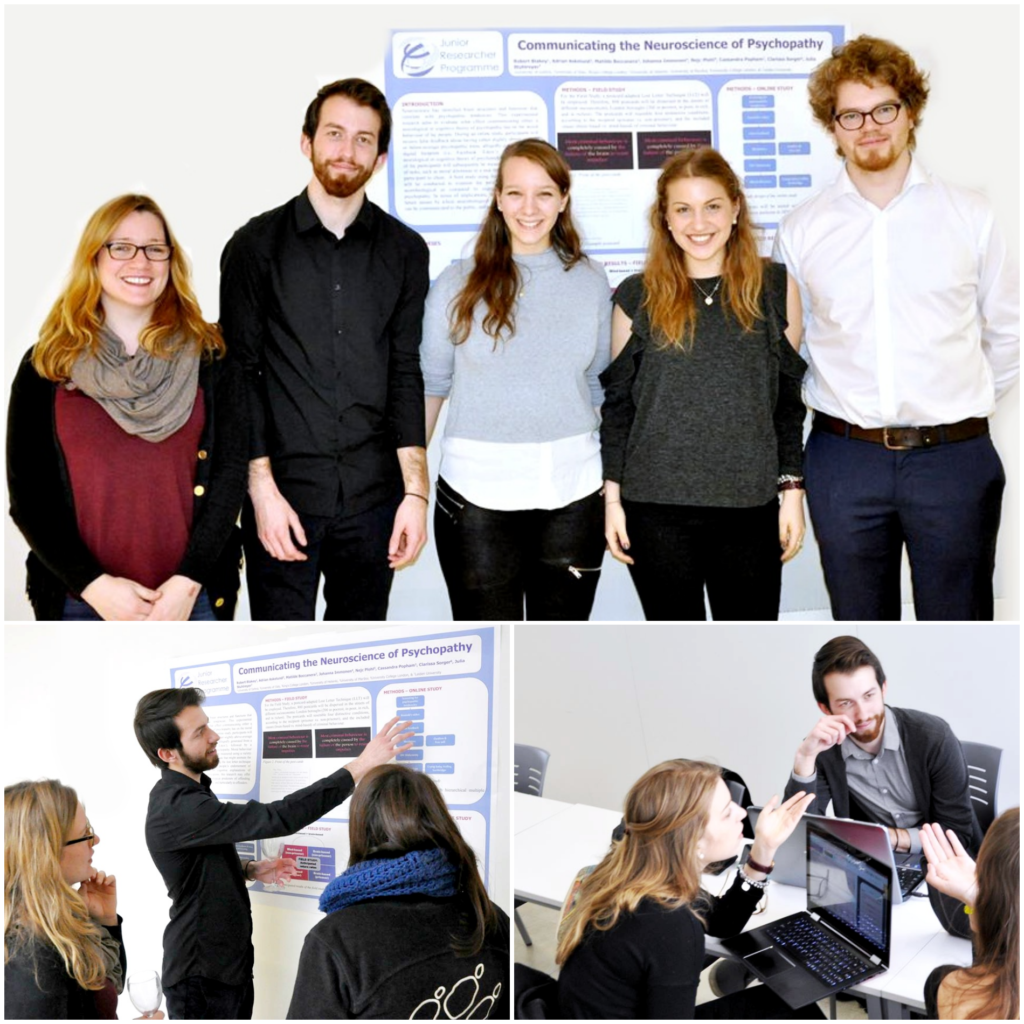
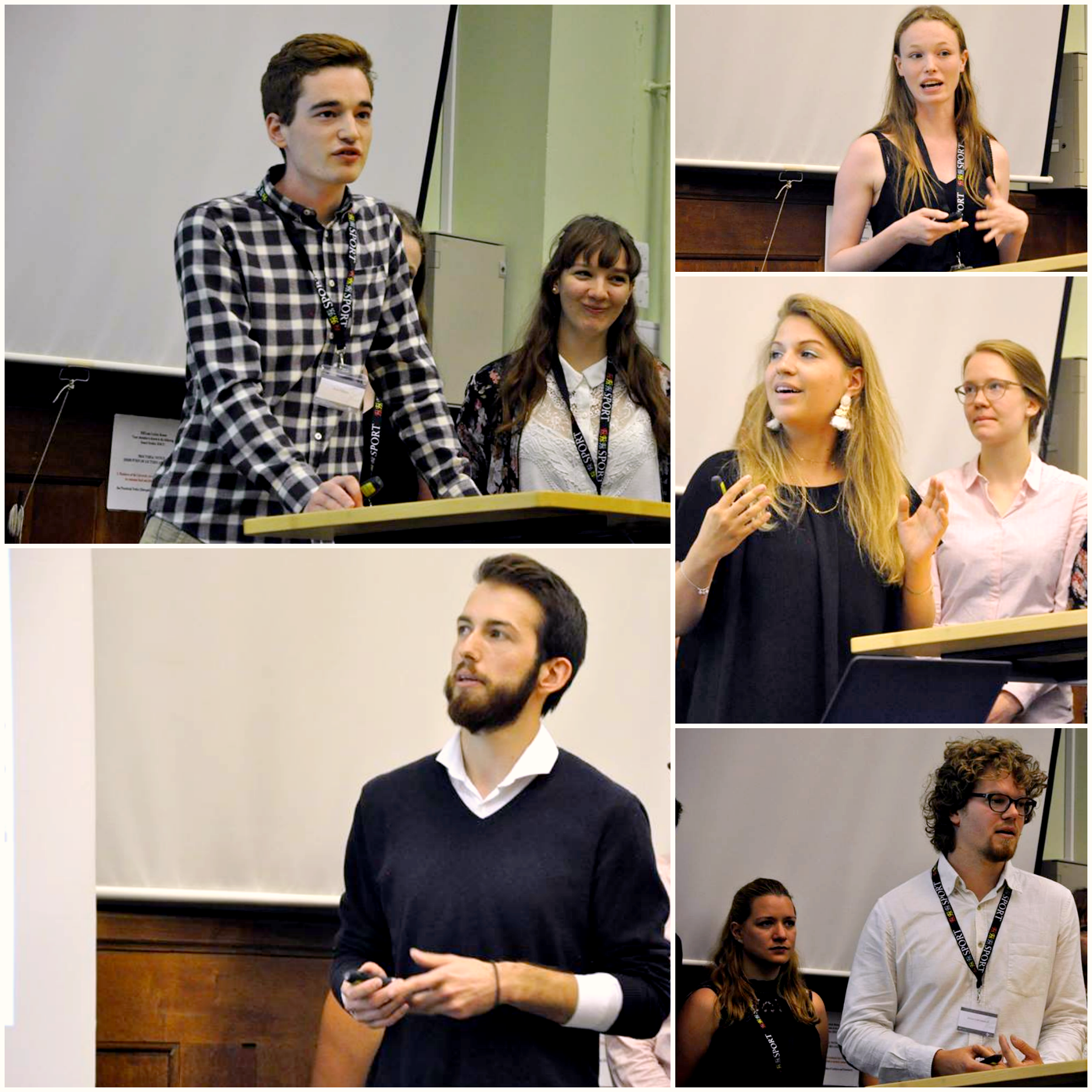
Presentations
February 2017. Communicating the neuroscience of psychopathy and its influence on moral behaviour. Poster presentation at UFV – Universidad Francisco de Vitoria, Madrid, Spain.
June 2017. Does the public fear educating prisoners in brain science? Dropping 832 postcards in 16 London boroughs. Criminology DPhil Day, University of Oxford.
August 2017. Does the public fear educating prisoners in brain science? Dropping 832 postcards in 16 London boroughs. Junior Researcher Programme Conference, University of Cambridge.
August 2017. I am not my brain: Communicating the neuroscience of psychopathy increases belief in free will. Junior Researcher Programme Conference, University of Cambridge.
The Researchers

Current Progress
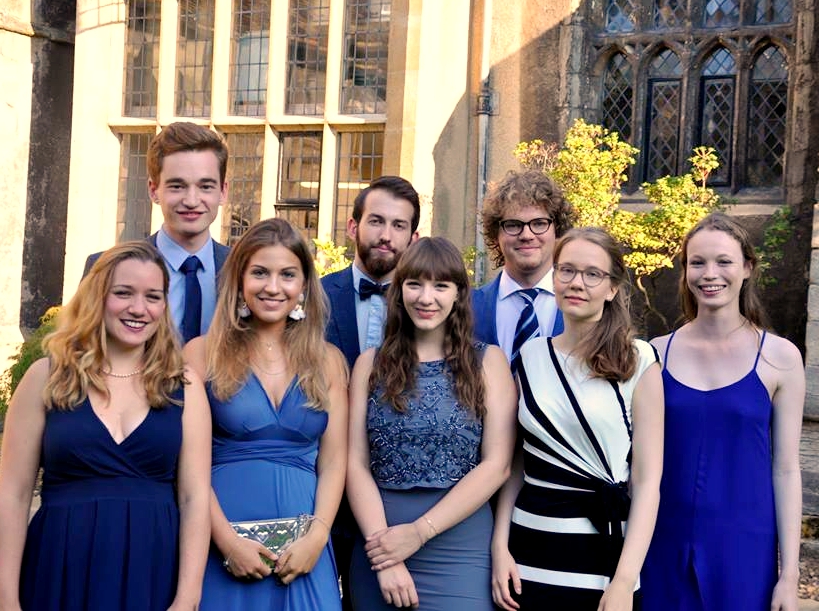
Since finishing their experiments (the completion date of the field study was the 16th of April 2017; the Online study closed end of May 2017), the group has been working on publications, presentations, and applications for conferences. They are currently writing their fourth paper, “Psychopaths amongst us: distribution and correlates of psychopathy in the general population”. Preliminary results were presented at the Junior Researcher Programme conference at Corpus Christi College, University of Cambridge, in August 2017.

